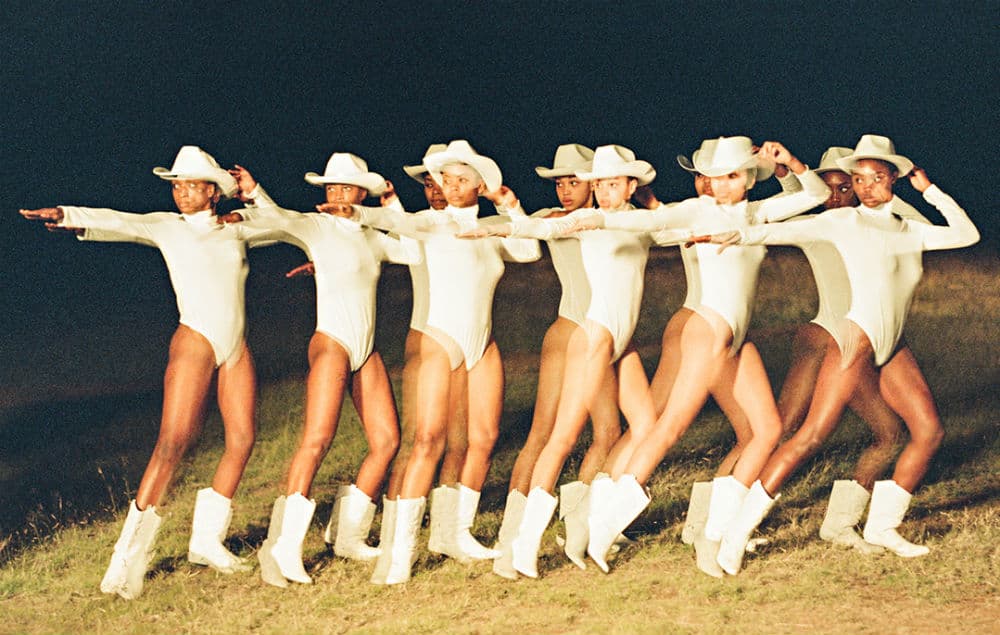Solange on coming home, black cowboys and the power of music
“With A Seat At The Table I had so much to say,” Solange explains, “with this album I had so much to feel.” An homage to her own homecoming, the vibrant artist created something so overwhelmingly full of understanding but so deeply intimate. A city with sprawling highways and silent sidewalks, there is an emptiness on first look which can be misunderstood, but the Houston of Solange’s world was distinct, it was full of life and love and laughter.
“I don’t know who John Wayne is. I don’t know his story”, Solange jests, but she’s not really joking, she explains, “I know about Zydeco and I know about Trail Rides, and I know those stories”. For too long the stereotypes of Southern culture have been strict and have been white. Upon visiting her hometown, it seems that that is undoubtedly the case, there is far more than meets the eye to the Texan community, and Solange is adamant on changing that picture. “I knew from about a year and a half ago that it was really important to me to be a small part in telling the story of black cowboys”, she explained to Antwaun Sargent at the city’s SHAPE (Self-Help for African People through Education) Community Centre. “Growing up here, you always saw black cowboys on the street,” but upon looking to the outside world, in fashion and the media, she saw that that wasn’t the worlds perspective of the culture, Americana was perceived as wholeheartedly white, “it was funny to me because all of the first cowboys I saw were black”.

The disconnect between the Houston we see and the Houston she sees is clear, it’s focused on community – you have to have lived it to know it. “I think growing up in Texas is such a spirited place,” Solange mused, “at any given time of day you can see and experience something that’s so unique but so grounded in our culture here”. A culture so rich it can inspire an entire album in fact, “I was just beginning to think of all the innovation that has happened here and really want to reflect on those things”, and reflect she did, into a project so wholeheartedly personal it will give you goosebumps. From the intoxicating repetition to the otherworldly lilts, When I Get Home takes you on a visceral trip to both back to Solange’s childhood and into the inner workings of her mind.
In ‘Almeda’ with Playboi Carti, HUNGER’s personal fave track, Solange immerses us into her stream of consciousness, all the while evoking a powerful image of black experience and identity. She sings:
“Brown liquor, brown liquor
Brown skin, brown face
Brown leather, brown sugar
Brown leaves, brown keys
Brown zippers, brown face
Black skin, black braids
Black waves, black days
Black baes, black days
These are black-owned things
Black faith still can’t be washed away”
Talking about her delicate use of repetition, Solange explained “I think repetition at this place in my life has given my a lot of reinforcement to my spirit and my body and trying to align all those things and really ground myself in them so that I really believe them. I think repetition is a very strong way to reinforce those mantras that we are given and we say but once we actually repeat them out loud and we call them into action and we call it into our lives, I saw things I couldn’t imagine.”
Inspired heavily by Stevie Wonder’s Journey Through the Secret Life of Plants, Solange explained that the form and style seeped into her work: “these artists who use repetition in their projects to reinforce their frequencies, really inspired me to live in that space…it sort of is a tribute to that record”. Sharing the space with her jazz band (one of whom, Richard Meyer, she played with back in middle school), the project evolved slowly but surely, finding its own way.
Leading and following throughout was the Holy Ghost, who Solange felt she was confronted by the idea of it at just 10 years of age: “the Holy Ghost or the Holy Spirit scared the shit out of me because it felt like something completely out of my control, it felt like something I had to surrender to, something that I couldn’t have a voice – it was just going to happen to me at any given time.” Over her spiritual and creative journey, the vibrant musician found herself being led yet again: “So many times there was something in the room guiding us and it felt like such a parallel to what was happening to me back then…I had to surrender. So much of the album, and the production, and the process, and the film – the Holy Ghost appears in this film – so much of this is about running from that and then confronting it.”

Focused on providing less of a statement and more of a state of being, Solange’s When I Get Home explored what it means to be her: as a woman, as a Black woman, as a Texan, as a human. “I think for this project and the film specifically, I was just so excited about this part of Texas; young black people just creating real experimental work. This is far more insular, its far more about feeling the frequencies, sounds but I think blackness will never go away – I will always be a black woman, I will always create work from a black woman’s body. Learning about all the things you see in this incredible place where I got to go to a black woman’s hair salon every day and hear the stories of women. Its just who I am, I don’t have to say it or express it, it’s just a part of me and it will always be a part of my work.”
Whether following the Holy Spirit’s lead, looking back to her vibrant childhood, looking for inspiration to her cultured hometown, or looking forward to her hopes for the future, Solange’s project revealed itself to be a cathartic and therapeutic experience. “To have something out in the world that feels like a try reflection of who I am, the things that I love to listen to, the things that I love to experience as just a snapshot of myself at this present time. At that time you truly feel seen.” Coming home meant bringing something new into the world, something personal but deeply full of life, filling our world with positivity and power just when we need it the most. And for Solange? “I just feel joy. That’s what home does for you”
Watch Solange’s full visual album on Apple Music now here, and listen to ‘When I Get Home’ below now.

